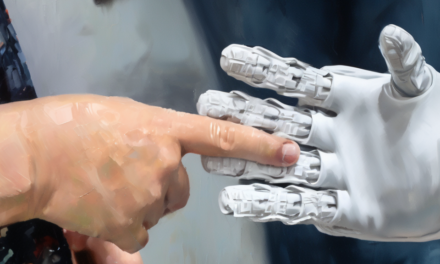Despite the increasing influence of Artificial Intelligence (AI) in the workplace, a recent survey conducted by specialist recruitment firm Robert Half indicates that 70% of UK workers still prefer human interaction when searching for a job.
The data from the Candidate Sentiment Survey unveils interesting insights into workers’ perceptions of AI and its impact on their roles.
The survey reveals that 70% of UK workers prioritize human interaction over AI when navigating the job market. Of this group, 36% explicitly choose to deal exclusively with humans rather than AI, while an additional 34% are open to AI involvement but still consider human interaction a fundamental aspect of their job-seeking experience.
Age Disparities in AI Preferences
Notably, the data indicates varying preferences across age groups. While 25% of 18-34 year olds prefer exclusive human interaction, the figure rises to 40% among those aged 35-54 and 49% for individuals over 55. Despite being more digitally exposed, 43% of the younger demographic express the importance of person-to-person interaction in the recruitment process.
Surprisingly, 35% of UK workers feel that AI has not yet impacted their roles and do not anticipate any changes in 2024. Only 9% believe that AI will reshape their roles by reducing administrative tasks, and a mere 3% anticipate a complete transformation in how they work this year.
Insights from Regional Director at Robert Half
Kris Harris, Regional Director, UK Technology Solutions, at Robert Half, acknowledges the potential of AI for process optimization and automation. However, he emphasizes the enduring importance of human subjective reasoning, especially in areas where a personal touch is crucial. Harris notes that the job-seeking and career-building experience remains deeply human, driven by the desire for purpose, fulfillment, and meaningful connections in the workplace.
Harris remarks, “Although emerging generations are certainly more adept at utilising technological developments, they still have a desire to connect with – and learn from – people, and that’s unlikely to ever disappear.”
While AI continues to shape the future of work, the survey underscores that the human factor remains integral, particularly in personal and subjective experiences like job seeking. The findings suggest that despite the digital prowess of younger generations, the human touch in recruitment and career-building is enduring.






